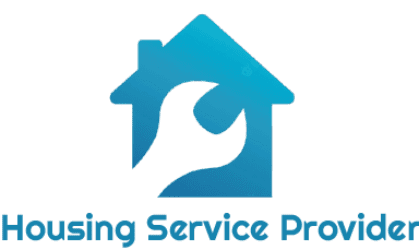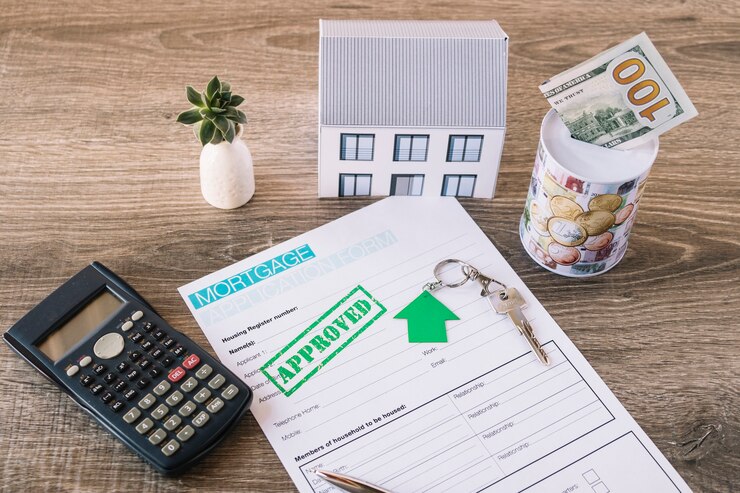A home inspection is typically required for a conventional loan, ensuring the property meets safety and habitability standards. Now, let’s explore why a home inspection is important for securing a conventional loan.
A home inspection is a critical step in the home buying process, especially when seeking a conventional loan. Conventional loans are those not insured or guaranteed by a government agency, making it crucial for lenders to verify the property’s condition before granting the loan.
During a home inspection, a qualified professional will thoroughly examine the property, assessing its structural integrity, systems, and potential issues. This inspection provides lenders with reassurance that the property is in good condition, reducing the risk of lending money for a property that may have undisclosed problems. While not a legal requirement, a home inspection is often strongly recommended to protect both the buyer and the lender. By providing an unbiased evaluation of the property, a home inspection helps ensure a smooth and informed home buying process.
Understanding The Role Of Home Inspection In Conventional Loans
Why Home Inspections Are Crucial For Conventional Loans
Understanding the role of home inspection in conventional loans is essential for every home buyer. Whether you are a first-time homebuyer or an experienced investor, a thorough home inspection can protect you from unexpected expenses and potential risks.
Highlighting The Purpose Of Home Inspections In The Loan Process
When you embark on the journey of purchasing a home using a conventional loan, it’s crucial to comprehend the purpose of home inspections. These inspections are designed to assess the condition of the property and identify any existing or potential issues that may affect its value or safety.
By thoroughly examining various aspects of the property, including its structure, systems, and components, a qualified home inspector can provide you with a comprehensive report. This report serves as a valuable tool in your decision-making process, allowing you to make informed choices about your investment.
With the detailed insights derived from a home inspection, you can negotiate with the seller to address any concerns or request repairs before finalizing the purchase agreement. Additionally, the knowledge gained from the inspection can help you plan for future maintenance and potential costs associated with the property.
Ensuring A Smooth Loan Process
Home inspections play a crucial role in the loan process for conventional loans, ensuring that both lenders and buyers have a clear understanding of the property’s condition and value. Lenders often require a satisfactory home inspection report before approving the loan, as it helps them assess the property’s worth as collateral.
Furthermore, a thorough home inspection can prevent surprises during the appraisal process. The appraisal is another key component of a conventional loan, determining whether the property meets the lender’s criteria and is worth the requested loan amount. When the home inspection report aligns with the appraisal, it increases the likelihood of a smooth loan closing.
Overall, home inspections are an integral part of the conventional loan process. By highlighting any potential issues before closing the deal, these inspections provide peace of mind and protect your investment. So, when you’re preparing for a home purchase, make sure to prioritize a comprehensive home inspection to ensure a smooth and successful loan process.

Credit: themortgagereports.com
Benefits Of Home Inspection For Conventional Loans
Getting a conventional loan to purchase a home is an exciting milestone for many individuals and families. However, before signing the dotted line, it’s crucial to ensure that the property you’re planning to buy is in good condition and free from any potential issues or defects. This is where a home inspection comes in. By evaluating the condition of the property, identifying potential issues or defects, and assessing its value and potential risks, a home inspection for conventional loans offers several key benefits that protect your investment and provide peace of mind.
Evaluating The Condition Of The Property
The first benefit of a home inspection for conventional loans is the thorough evaluation of the property’s condition. During the inspection, a qualified inspector will conduct a comprehensive examination of the structural components, mechanical systems, and overall condition of the home. This includes inspecting the foundation, roof, plumbing, electrical systems, HVAC, and more. By assessing the condition of these vital elements, you can make an informed decision about whether the property meets your expectations and if any repairs or maintenance are needed.
Identifying Potential Issues Or Defects
Another advantage of a home inspection is the ability to identify potential issues or defects that may not be apparent to the untrained eye. Inspectors are trained to look for hidden problems such as water damage, mold, pest infestations, faulty wiring, plumbing leaks, and structural issues. By uncovering these hidden defects, you can negotiate repairs or potentially reconsider your offer. Knowing about these issues in advance can save you from unexpected expenses and headaches down the line.
Assessing The Value And Potential Risks Associated With The Property
A home inspection for conventional loans also helps in assessing the value and potential risks associated with the property. By evaluating the condition and identifying any issues, the inspector can provide a more accurate assessment of the property’s value. This knowledge is essential when negotiating the purchase price. Additionally, a thorough inspection can uncover potential risks such as safety hazards or structural weaknesses, allowing you to make an informed decision about the property’s suitability for your needs and lifestyle.
In conclusion, a home inspection for conventional loans offers numerous benefits that protect your investment and provide peace of mind. By evaluating the property’s condition, identifying potential issues or defects, and assessing its value and potential risks, you can make an informed decision about your home purchase and negotiate with confidence. Remember, investing in a professional home inspection can save you time, money, and future headaches. So, before finalizing your conventional loan, consider the many advantages of a thorough home inspection.
The Home Inspection Process For Conventional Loans
Explaining The Steps Involved In A Home Inspection
A home inspection is a crucial part of the process when purchasing a property through a conventional loan. It ensures that the house you are interested in buying is in good condition and free from any major issues that could affect its value or safety. Let’s take a closer look at the steps involved in a home inspection:
- 1. Research and Hire a Certified Home Inspector: Start by finding a qualified and certified home inspector who specializes in conducting thorough inspections for conventional loans. Look for inspectors who have experience with similar properties and are familiar with the specific guidelines set by conventional loan lenders.
- 2. Schedule the Inspection: Once you have found a suitable home inspector, schedule the inspection appointment. Make sure to choose a time that allows you to be present during the inspection, as this will give you the opportunity to ask questions, address any concerns, and gain a better understanding of the inspector’s findings.
- 3. Physical Examination of the Property: On the day of the inspection, the home inspector will visit the property to conduct a physical examination. This examination involves a comprehensive assessment of the property’s structural integrity, electrical systems, plumbing systems, HVAC systems, and other important components. The inspector will also check for signs of pests, water damage, and any potential safety hazards.
- 4. Detailed Report and Recommendations: After completing the inspection, the home inspector will prepare a detailed report outlining their findings. This report will highlight any issues discovered during the inspection and provide recommendations for repairs or further evaluation, if necessary. The report will usually be available within a few days, allowing you and your lender to make an informed decision regarding the property.
- 5. Negotiations and Repairs: If the inspection uncovers any significant issues, you can use the report to negotiate repairs or potentially renegotiate the price of the property. Depending on the severity of the problems found, you may request that the seller rectify the issues before closing or ask for a credit towards the repairs. In some cases, you may decide to walk away from the deal if the issues are too extensive or costly to address.
- 6. Re-Inspection (if necessary): In cases where major repairs were negotiated, it’s essential to schedule a re-inspection to ensure that the agreed-upon repairs were completed to your satisfaction. This will give you peace of mind and assurance that the property is in the condition you expected before finalizing the purchase.
Finding A Qualified And Certified Home Inspector
Finding a qualified and certified home inspector is vital to ensuring a thorough and accurate assessment of the property you intend to purchase with a conventional loan. To find a reliable and experienced home inspector, consider the following:
- 1. Recommendations: Ask your real estate agent, friends, or family for recommendations. Personal referrals can provide valuable insights into the professionalism and expertise of a home inspector.
- 2. Check Credentials: Look for home inspectors who are licensed, certified, and belong to professional organizations such as the American Society of Home Inspectors (ASHI) or the National Association of Home Inspectors (NAHI). These organizations often have strict standards and require ongoing education to maintain membership.
- 3. Experience and Specialization: Inquire about the inspector’s experience and areas of specialization, particularly in conducting home inspections for conventional loans. Ensure they have a deep understanding of the specific requirements and guidelines set by conventional loan lenders.
- 4. Sample Reports: Request sample inspection reports to get an idea of the inspector’s attention to detail and the level of thoroughness they bring to their work. A comprehensive report should provide clear descriptions of any issues, including supporting photographs and recommendations for further evaluation.
Preparing For The Home Inspection Appointment
Preparing for the home inspection appointment can help ensure a smooth and productive process. Here are some essential steps to take:
- 1. Clear Access: Ensure that the inspector will have unobstructed access to all areas of the property, including the attic, basement, crawl spaces, and electrical panels. Remove any personal belongings or stored items that may impede the inspection.
- 2. Documenting Known Issues: Make a list of any known issues or concerns you have about the property and share it with the inspector. This will help them focus on these specific areas during the inspection and provide expert insights.
- 3. Gather Necessary Documentation: Collect any relevant documentation related to the property, such as maintenance records, previous inspection reports, and warranties. These documents can provide valuable background information and help the inspector gain a more comprehensive understanding of the property.
- 4. Take Notes and Ask Questions: During the inspection, take notes of the inspector’s findings and feel free to ask questions. This will help you gain a better understanding of the property and any potential issues that may impact the condition or value.
- 5. Follow-Up Actions: After receiving the inspection report, go through it carefully and discuss any concerns or necessary actions with your real estate agent and the lender. This will enable you to make informed decisions based on the inspection findings.
What To Expect During A Home Inspection For Conventional Loans
When you’re buying a home through a conventional loan, it’s essential to have a home inspection to ensure the property is in good condition and worth the investment. A home inspection is a thorough examination of the property’s major components, including its structure, electrical system, plumbing, and HVAC system. It aims to identify any issues or concerns that may affect the value or safety of the house.
Walkthrough Of The Property With The Home Inspector
During a home inspection for a conventional loan, you’ll have the opportunity to walk through the property with a qualified home inspector. This walkthrough is a crucial part of the inspection process as it allows the inspector to visually assess the property’s condition and identify any areas that require further examination. The inspector will pay close attention to the overall appearance of the home, noting any visible damages, signs of neglect, or potential red flags.
Examination Of Various Components Of The House, Including Structural, Electrical, Plumbing, And Hvac Systems
Once the walkthrough is completed, the home inspector will conduct a comprehensive examination of various components of the house. This examination covers critical areas such as the structure, electrical system, plumbing, and HVAC (heating, ventilation, and air conditioning) system. Each component will undergo careful scrutiny to identify issues such as structural damage, faulty electrical wiring, plumbing leaks, or HVAC malfunctions.
Structural Inspection:
- Foundation and walls
- Roof and attic
- Doors and windows
- Floors and ceilings
Electrical Inspection:
- Electrical panels and wiring
- Switches, outlets, and light fixtures
- Adequate grounding and insulation
Plumbing Inspection:
- Pipes and fixtures
- Drainage system and sewer lines
- Water heater and water pressure
HVAC Inspection:
- Heating and cooling systems
- Air filters and ductwork
- Thermostats and controls
Documentation Of Any Issues Or Concerns Discovered During The Inspection
Throughout the home inspection, the inspector will take notes and document any issues or concerns discovered. These concerns might range from minor repair needs to significant safety hazards. The inspector will record everything in a detailed report, including photographs if necessary. This documentation is crucial as it acts as a reference for both the homebuyer and the seller. It ensures that all parties are aware of the property’s condition and any necessary repairs or negotiations that need to take place before finalizing the purchase.
In conclusion, a home inspection for a conventional loan provides peace of mind for homebuyers. It allows you to make an informed decision about the property while ensuring that you are investing in a safe and structurally sound home.
Understanding The Home Inspection Report For Conventional Loans
html comment
When it comes to obtaining a conventional loan for purchasing a home, one crucial step is to undergo a thorough home inspection. The home inspection report plays a vital role in the loan process as it provides detailed information about the condition of the property. Understanding the contents of the home inspection report is essential to make an informed decision and ensure a smooth loan process.
html comment
Examining The Components Of A Comprehensive Home Inspection Report
html comment
A comprehensive home inspection report typically contains several components that highlight different aspects of the property. By examining each of these components, you can get a clearer understanding of the overall condition of the home.
Table Start
| Component | Description |
|---|---|
| Structural | The structural component focuses on the foundation, walls, roof, and other structural elements of the property. It identifies any visible damages, cracks, or signs of structural instability. |
| Mechanical | This component covers the HVAC system, plumbing, electrical wiring, and other mechanical elements. It assesses their functionality, condition, and potential need for repairs or updates. |
| Exterior | The exterior component examines the condition of the exterior walls, fascia, gutters, windows, and doors. It looks for signs of water damage, deterioration, or any other issues that may affect the home’s integrity. |
| Interior | This component evaluates the condition of the interior spaces, including walls, ceilings, floors, and fixtures. It identifies any visible damages, signs of pest infestation, or potential safety concerns. |
| Roofing | The roofing component focuses on the condition of the roof, including any visible damages, leaks, or areas that may require repairs or replacement. |
Table End
html comment
Interpreting The Findings And Recommendations Provided In The Report
html comment
Interpreting the findings and recommendations mentioned in the home inspection report is crucial for making informed decisions. The report typically includes detailed descriptions of any issues discovered during the inspection, along with recommended actions. It is important to carefully review these findings to understand the potential costs and consequences associated with necessary repairs or updates.
html comment
Additionally, the report may indicate areas that require further investigation by specialized professionals, such as structural engineers or pest control experts. Considering these recommendations ensures that all potential issues are addressed before finalizing the loan process.
html comment
Discussing The Importance Of Reviewing The Report Before Finalizing The Loan Process
html comment
Reviewing the home inspection report before finalizing the loan process is of utmost importance. This review allows the buyer to assess the overall condition of the property and determine if any repairs or updates are necessary. It ensures that the buyer is fully aware of the potential risks and costs associated with the property, helping them make an informed decision.
html comment
Moreover, reviewing the report enables buyers to negotiate with sellers regarding repairs or ask for a price reduction if significant issues are identified. It gives them the opportunity to protect their investment and avoid unwanted surprises after the purchase.
Frequently Asked Questions On Home Inspection For Conventional Loan
What Type Of Inspection Is Required For A Conventional Loan?
A standard inspection is required for a conventional loan. It helps assess if the property meets the lender’s requirements and if there are any major issues that could affect its value. This inspection covers the overall condition of the property, including the structure, systems, and functionality.
What Do Appraisers Look For On A Conventional Loan?
Appraisers assess the value of properties for conventional loans. They consider factors like the property’s condition, location, and comparable sales. They also evaluate the home’s size, features, and upgrades. The appraiser’s goal is to determine if the property’s value supports the loan amount.
What Is The Lowest Down Payment For A Conventional Loan?
The minimum down payment for a conventional loan is typically 3%.
What Do I Need For A Conventional Loan?
To qualify for a conventional loan, you will typically need a good credit score, a stable income, and a down payment. Lenders may also consider your debt-to-income ratio and employment history. Meeting these requirements will increase your chances of getting approved for a conventional loan.
Conclusion
A home inspection is an essential step in the conventional loan process. It allows buyers to gain a thorough understanding of the property’s condition and identify any potential issues. By addressing these concerns upfront, buyers can make informed decisions and avoid costly surprises down the road.
Whether you’re a first-time homebuyer or experienced investor, a home inspection provides peace of mind and protects your investment. Don’t skip this crucial step – schedule a comprehensive home inspection today.




